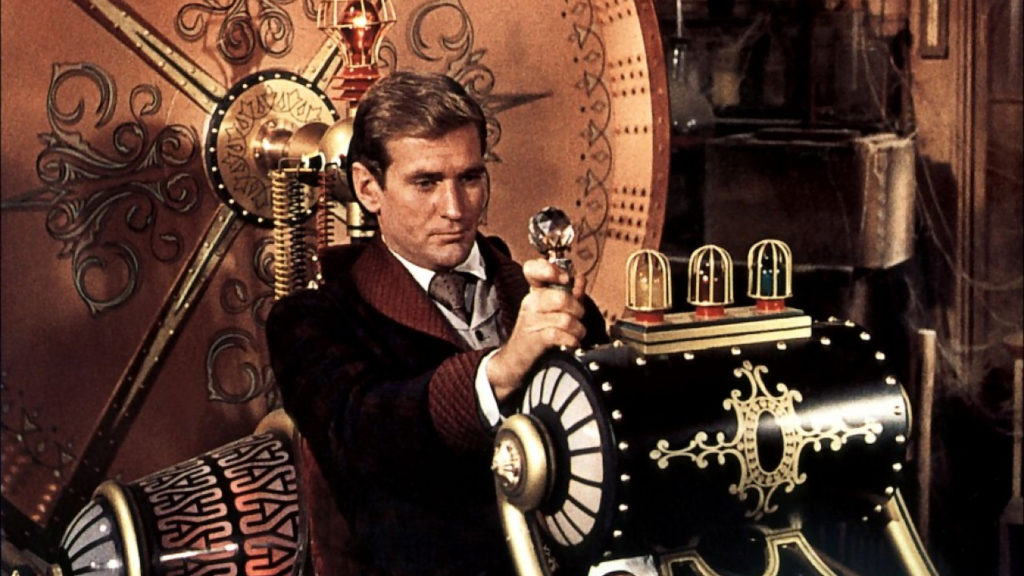Things To Come: What Will Christians Face In The Future?
H.G. Wells’ first novel, The Time Machine (1895), predicted future events with so much accuracy one wonders if he might have invented the novelized contraption that catapulted him into literary fame. His work, Anticipation, showed astute understanding of future political events and sociological changes. The 1936 movie, Things to Come, was scripted in large part by Wells and based on his works, The Shape of Things to Come (1933) and influenced by earlier works such as A Story of the Days to Come (1897), and, The Work, Wealth and Happiness of Mankind (1931).
In my forthcoming book, The Fifteenth Article, a futuristic political thriller, I based my future world upon current social, economic, and spiritual trends that, if unimpeded would evolve to a natural conclusion.
The innate human quest for supremacy and power will continue for as long as the Prince of the Air is given reign.
Here are a few of my visions for what may come.
First, when sea levels rise, a cataclysmic spiral of disease, famine, and lack of resources will pit nation against nation. Humanity will seek a savior to avoid extinction. Thus, a global government will arise to unite mankind in one accord. Eventually, a democratic world government will be corrupted by those who lust for power. Factions will resist and the world will once more teeter upon a civil war that could throw civilization back into a third dark age. There will be those who will fight to keep the status quo, those who promote out and out rebellion, and a myriad of groups will fall between the two ideologies.
Second, as the world continues to war against religiosity and major religious groups come to blows in their quest for dominance, conflict will escalate. When the world unites, those in power will criminalize religious expression and blame such behavior on the chaos that nearly eradicated all humanity. Without moral guidelines, as in the days of the Judges, people will strive to define morality by personal standards.
Third, with the demise of organized religion, government will be unable to define marriage and family. Yet, human nature, being what it is, will still desire ceremony and ritual in the joining of human flesh. A system for the nuclear family will be developed, which I call the familial contract, comprised of up to six individuals…all one sex or a mixture of both. The government will enforce a three-year waiting period before allowing children into the familial mix. An illegal pregnancy may result in forced abortion, the fetus donated to meme factories for production of genetically engineered humans manufactured to fill labor shortages.
Fourth, humanity’s dark side will still tend toward subjugation of others to serve society’s lust for pleasures. In my future world, memes, manufactured human flesh, do most of the menial work and are considered tools created for humanity’s service … in practice a system tantamount to slavery.
Fifth, for as long as Christ tarries, He will leave a remnant of faithful followers. In 2073, a minority called Christ Followers will struggle to follow their tenets within a society that opposes religion of any kind. The use of memes will challenge traditional Christian thought. Many will adamantly oppose the system. Others will try to administer Christ-like behaviors within the system. Memes have no rights, though they are human. Eventually, the quest for freedom will impact this segment of society. Though no revolution occurs in this novel, the stage is ripe for a civil war reminiscent of one that occurred over two centuries ago.
Sixth, to survive the chaos after global disaster, society will eventually reorder itself. In The Fifteenth Article, I envision the construction of domed cities where life is deemed good. The globe is sectored into nineteen provinces, many considered uninhabitable, but under domination of United Earth. To police the new world order, the Interprovincial Equalization Authority is created, each province has a municipal system of governing. Each city has ten sectors, divided according to wealth and class, the poorest of society are huddled into decaying areas in Sector Ten. Occasional roundups are carried out to transfer inhabitants from the outworlds, those outside the cities’ perimeters, and victims dumped into Sector Ten to await repatriation status. There are few social programs to assist the poor, and living conditions in this sector are brutal. Eventually, outworlds will organize their own systems of government. The quest for independence will renew a nationalistic fever and threaten the existence of United Earth.
Seventh, technology will eventually recover and advance. Within the cities, I envision a repurposing of old subway systems and the creation of other public transportation. Airdocks will be constructed for inter and intra provincial travel. Outworlds will develop their own systems of travel. Individual communication devices will have projection capability. Improved housing will be minimal and only the wealthy will be able to afford more than the standard one or two rooms granted to most of the Citizenry. Food will be mostly cloned. Again, only the wealthy will be able to afford first generation food stuffs. To police and control, only duly recognized citizens who wear an implanted device will be able to conduct business and utilize services. These implants will be linked to a monitoring device called The Mainframe, its access guided by a holographic icon called EVE (external virtual educator).
These are only a few of my impressions of what the world may be like in 2073. What do you predict?





































